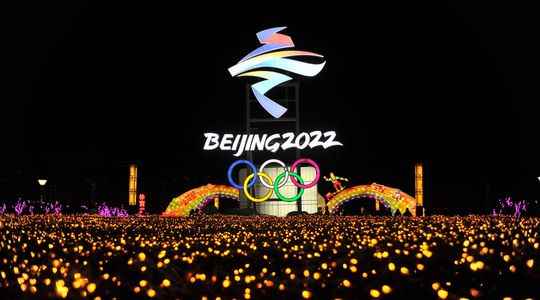During the 2008 Olympic Games, a smiling and laudatory George W. Bush met Chinese Vice-President Xi Jinping, in charge of the final preparations for the event, in Beijing. China has multiplied the pledges of goodwill to win the Games. And the West believes that its international integration and economic development will promote its democratization.
Fourteen years later, the Olympics are taking place again in the Chinese capital (from February 4 to 20) and Xi Jinping is still there. But the comparison stops there. The current American president, Joe Biden, will not make the trip to protest against the repression of the Uyghurs and the human rights situation. And the debonair-looking former Chinese number two has turned into an all-powerful, authoritarian and nationalist leader. Under his leadership, China, which dreamed of joining the big leagues on the world stage in 2008, is now vying with the United States for first place. And radically changed his attitude.
Change of attitude
“Until 2008, the Chinese government did everything possible to impress the planet, to present a smiling face. Today, economically and politically stronger, the Chinese power is more sure of itself, more assertive: it does not seek more to please the rest of the world, but asks that we adapt to it”, estimates Xu Guoqi, professor of history at the University of Hong Kong, and author of Olympic Dreams: China and Sports, 1895-2008.
The 2008 Olympics were a turning point, both internally, with a hardening of repression against any dissonant voice, and vis-à-vis the outside. “The success of the organization, and the international recognition that this has brought, the Chinese record of gold medals, and then the fact that China manages not to be too affected by the global financial crisis, all of this has considerably reinforced the country’s self-confidence,” adds Zhao Tong, a researcher at the Carnegie Tsinghua Center in Beijing. The rise in economic and geopolitical power of the communist giant then accelerated the phenomenon.
Autocrats in the gallery
This uninhibited self-affirmation is illustrated in particular by the military expansion in the South China Sea, the stifling of freedoms in Hong Kong, the pressures on Taiwan. And the refusal of the communist regime, proclaiming the superiority of its political model, to receive the slightest lesson from a West that it considers declining. A new generation of diplomats, defining themselves as “wolves warriors” no longer hesitate to retaliate aggressively to any questioning of the Party’s propaganda coming from outside, whether on the origin of the epidemic of Covid-19 or the human rights situation. “China is more powerful than before; it knows that it has more influence, means of pressure to punish the organizations and the countries which criticize it”, summarizes Zhao Tong.
On the other side of the coin, the gap has widened with the West, where the image of the Middle Kingdom has collapsed in recent years. At the Olympic Games, subject to a diplomatic boycott by the United States and some of their allies, Xi Jinping will also be mainly surrounded by autocrats in the stands, such as the Russian Vladimir Poutine, the Egyptian Abdel Fattah Al-Sissi or the Saudi Arabian Mohammed bin Salman. As if a new chapter, even more worrying, opened with these new Beijing Games.
